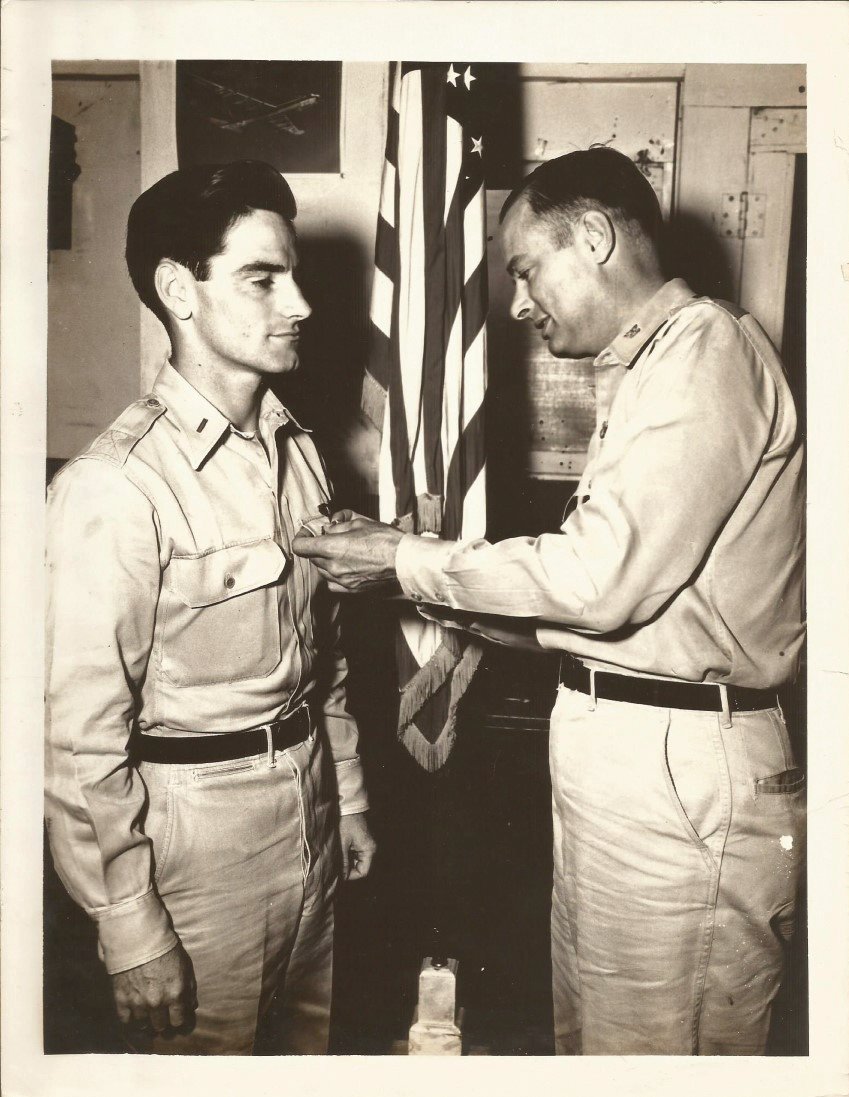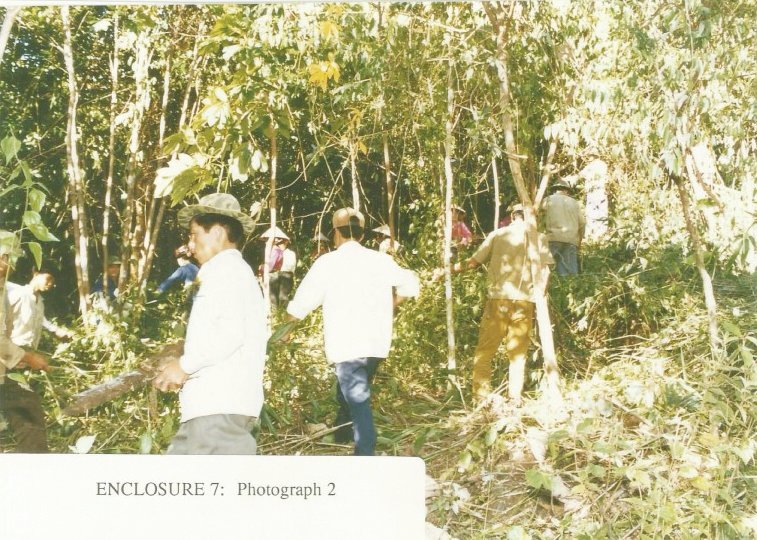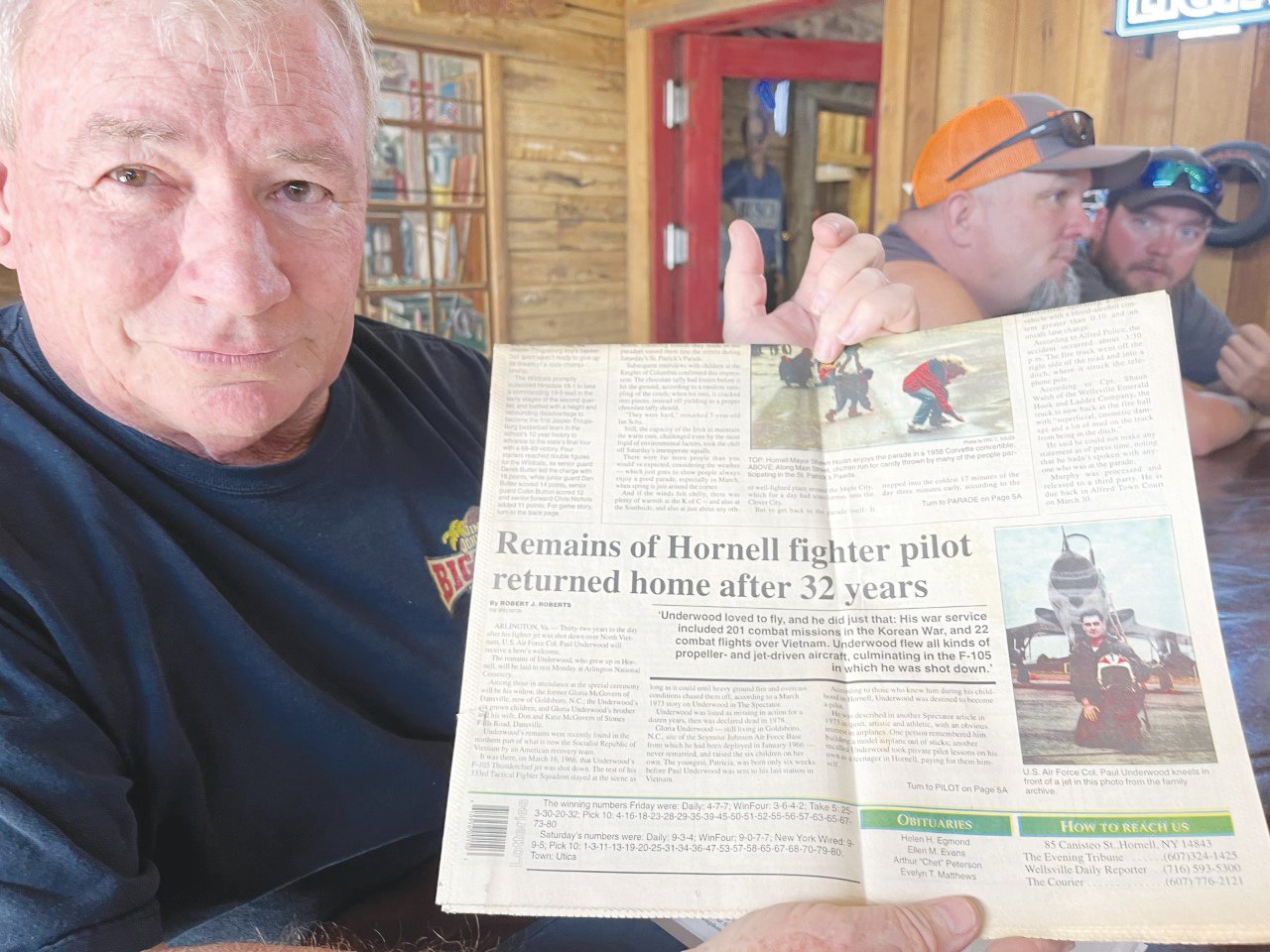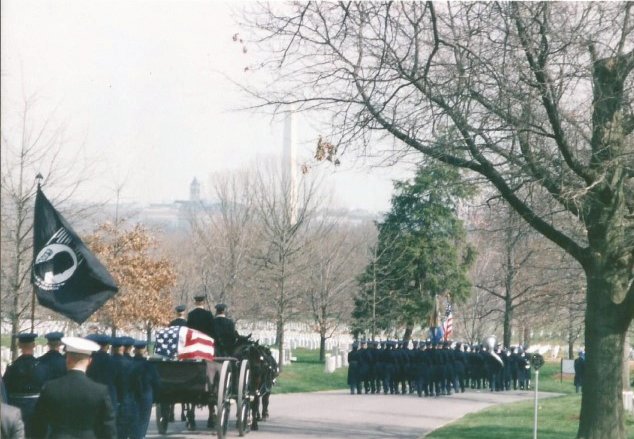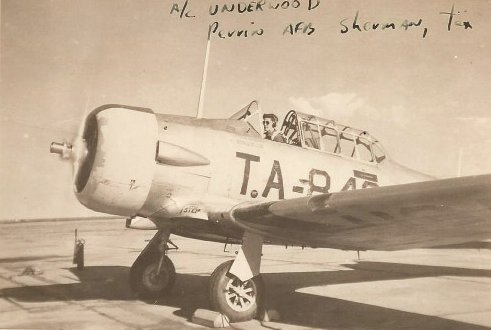Hero pilot finally was laid to rest 32 years after his jet was shot down in Vietnam
Local son has an emptiness, respect created by his father’s sacrifice
LAKE ASBURY – The radar went dark on March 16, 1966, over Lai Chau Province in North Vietnam. Jim Underwood was just 12 then – and a half-world away trying to comprehend society’s discord, his …
This item is available in full to subscribers.
Attention subscribers
To continue reading, you will need to either log in to your subscriber account, or purchase a new subscription.
If you are a current print subscriber, you can set up a free website account and connect your subscription to it by clicking here.
If you are a digital subscriber with an active, online-only subscription then you already have an account here. Just reset your password if you've not yet logged in to your account on this new site.
Otherwise, click here to view your options for subscribing.
Please log in to continueDon't have an ID?Print subscribersIf you're a print subscriber, but do not yet have an online account, click here to create one. Non-subscribersClick here to see your options for subscribing. Single day passYou also have the option of purchasing 24 hours of access, for $1.00. Click here to purchase a single day pass. |
Hero pilot finally was laid to rest 32 years after his jet was shot down in Vietnam
Local son has an emptiness, respect created by his father’s sacrifice
LAKE ASBURY – The radar went dark on March 16, 1966, over Lai Chau Province in North Vietnam. Jim Underwood was just 12 then – and a half-world away trying to comprehend society’s discord, his father’s void and the isolation a child of the military could only understand.
Days of anguish for the family quickly turned into months. Then into years. Then into decades. And yet, his family back in the States never lost hope their strapping father would walk through the door with a pilot’s swagger, smile and a flight cap crooked a little off-center.
As long as there was no news, it was good news.
U.S. Air Force Col. Paul Underwood officially was listed as missing in action for years before the military declared him dead. Even then, his family never lost hope he’d return home until they saw the official report in 1997 that it had recovered his dog tags and what was believed to be 32 of his bone fragments at a crash site.
Without being able to say “goodbye” or “I love you” one more time, the Underwoods reluctantly walked their father’s remains to Arlington Cemetary 32 years to the day after his F-105 Thunderchief fell from the sky.
Underwood was leading a strike mission, and as he released his payload he reported his jet was on fire. Underwood’s wingman said he saw the F-105 crash – and that he never saw a parachute.
Still, the family refused to consider the worst.
Now the Underwoods have a different appreciation for Memorial Day.
“Well, while we were waiting for him to be found, Memorial Day didn’t have that big of an impact because a lot of the family, we just thought he was still alive,” Jim Underwood, now 55, said. “We were just waiting for them to find him. And then afterward, you know, when we found out that he had passed away.
“Of course, you know, Memorial Day now greater impact. And you realize a lot of the other people who’ve also lost their loved ones during that time. You just sort of go on from there, but during the time where he was missing an action, we were all pulling for him the whole time. We wouldn’t let him die, so to speak.”
Underwood was flying a fighter that could travel at 581 mph with a ceiling of 48,100 feet and it was equipped with a 22 mm cannon and it was capable of delivering 8,000 pounds of munitions, including conventional bombs, rocket packs, missiles and special weapons. It was lethal.
But something went wrong on March 16, 1966. And there never will be any definite answers.
Underwood’s likely crash site was in the heart of the enemy territory. The rest of his 33rd Tactical Fighter Squadron stayed near the scene as long as they could until they fell under heavy ground fire and worsening weather conditions.
There wasn’t any way to coordinate a search and rescue team, especially when bullets break the silence of the nighttime. The Air Force knew the reality of the situation. Often, missing in action means they weren’t able to recover the remains.
Once the war ended, an American recovery team was dispatched to the area to bring Paul Underwood home. It’s what the military does. They don’t leave a brother behind.
In 1996, the search team excavated an area of 50-by-50 meters that some locals remembered as the site. After 20 days, they had bone fragments and dog tags.
For the Underwood family, the military finally had uncovered a reason for some closure.
The military provided the family with a detailed account of the search and what it recovered. It was filled with photos, reports and maps. It also said the fragments and dog tags were a forensic match to Col. Underwood.
“We saw the report and we realized that he was dead,” Jim Underwood said.
On Monday, March 16, 1998, his remains were taken to Arlington National Cemetary where they were entombed with other American heroes who have their own stories of family sacrifice and sorrow.
And acts of indescribable courage.
Jim Underwood never had a chance to know a lot about his father. He still feels cheated from growing up having to learn many of life’s lessons from other fathers.
“I remember him taking us every week to get haircuts,” he said. “I remember him helping us build models. And I remember he used to take us to the base and we would sit in the cockpits of the fighters.
“He was traveling all over the world most of the time, so it didn’t seem very much that I’d feel like my childhood was robbed. I’m not angry. But I did find an attachment to other people’s fathers in the neighborhood where I would go over and hanging out with him – the guy across the street was an electric motor repairman and a welder and I’d sit down and talk with him and stuff. We’d work on go-karts and mini bikes and also that kind of stuff. And he was sort of like a second father. You know, a child needs that bonding with a father figure. And so we found that where we could.”
Underwood had such high regard for his father – “He was my hero” – he retired from the military.
Underwood knows the majority of today’s society will never understand the sacrifices that were necessary to keep a nation safe. He worries stories like his father will be a forgotten footnote in a world of continued chaos.
“I don’t think they actually realize what they did for this country,” he said. “And I don’t think it would actually sink in on many of the new millennials because they’ve never had to go through this and their lives are tied up with kind of ridiculous things. We’ve never really been in a, so to speak, major world war that would actually affect the population. And so they’re not going to know that and they’re never going to be able to appreciate that.”
But a nation can remember. It does every Memorial Day, and it’s possible because of the sacrifices made by so many before us.
Like Col. Paul G. Underwood.


